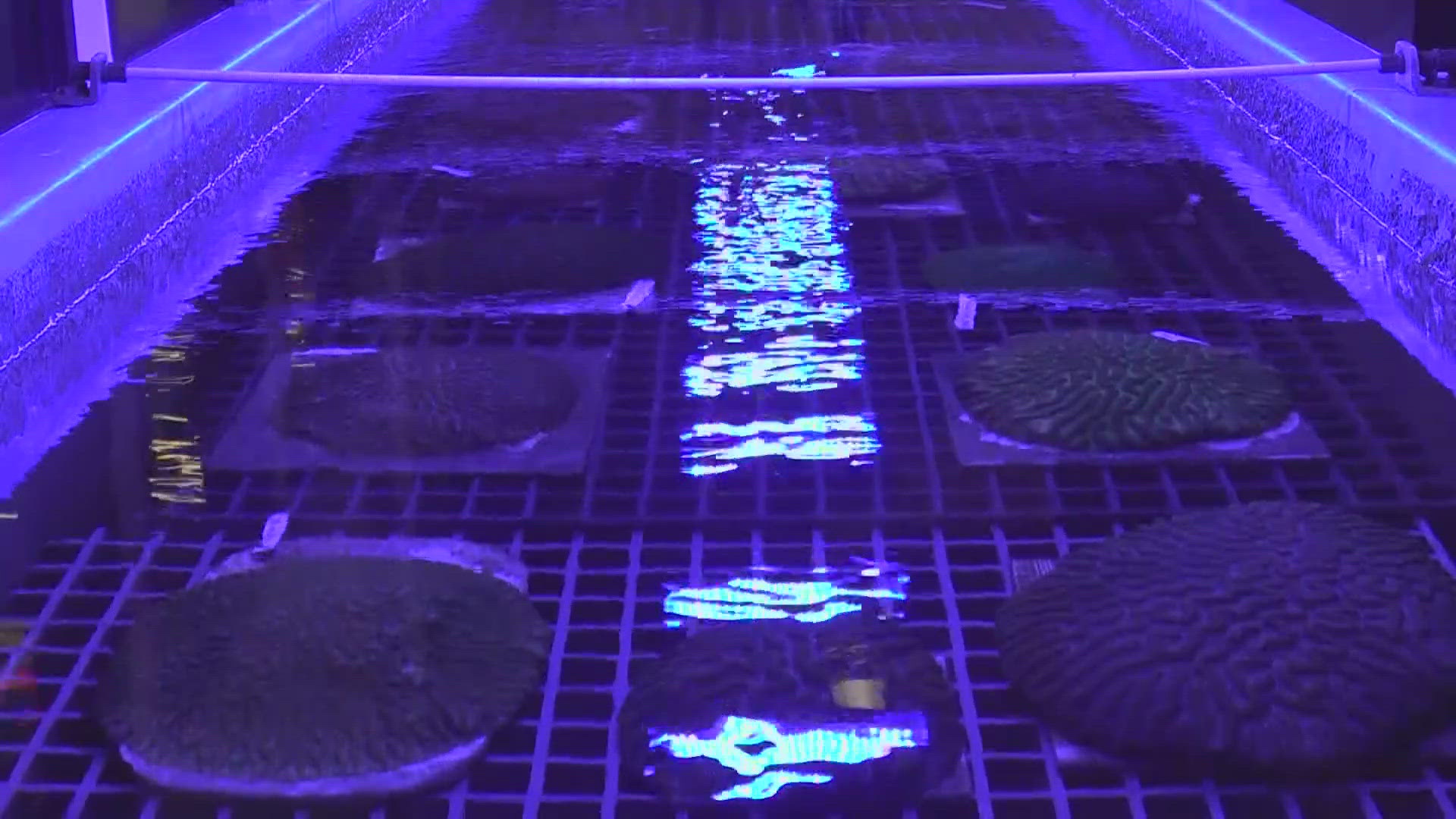KEY WEST, Florida — Coral reefs in the Florida Keys could be the saving grace needed to keep coral alive during a rise in ocean temperatures, all because of a NOAA grant to South Florida scientists, WLRN reports.
Global coral health has declined from warming ocean temperatures, the National Oceanic and Atmospheric Administration reports. The University of Miami and its partners will use a $16 million grant over three years to implement strategies to increase coral heat tolerance.
The work aims to plant about 100,000 more resilient coral on the reefs in the Florida Keys National Marine Sanctuary. The resilient coral will come from South Florida coral that survived last summer's heat waves and high water temperatures.
UM's Rosenstile School of Marine, Atmospheric and Earth Science will spearhead the project alongside local coral restoration groups over the next three years, according to Jennifer Moore, the coordinator of coral recovery in the Southeast for NOAA.
“It will help us basically grow the next generation of corals that are better able to deal with the temperature stress,” Moore said at a news conference.
Coral isn't the only marine life being restored, though. NOAA and other scientists are working to restore the life needed to keep the reef healthy, like sea urchins, Caribbean king crabs and lobsters.
“Again, we’re on a spectrum of ramping up from research to restoration,” Moore said.
The NOAA grant comes from the Inflation Reduction Act and will provide researchers with $7.7 million for the first year and up to $16 million total over the three years.
The effort to breed more resilient coral has been a project over the last decade. Scientists have been working to focus on the coral, as well as the microscopic algae that live inside coral's hard shells and photosynthesize to provide food for the coral, according to WLRN.



